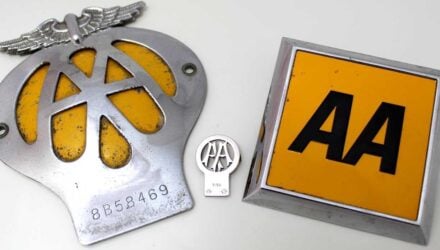
Will hydrogen blow electric out of the forecourt
Will hydrogen blow electric out of the forecourt?
In-car technology continues to increase in speed and power, which makes the recent Consumer Electronics Show in LA a hotbed for vehicle advancements. Some of the biggest announcements at CES2015 came from car manufactures showing what the future of our roads will look like – autonomous cars continued to impress the crowds with the release of the Mercedes Luxury in Motion and the Audi A7 driving itself from San Francisco to LA. However the biggest announcement for the future of cars came from Toyota who gave away around 6,000 patents covering hydrogen fuel cell technology. Toyota said they took the step in order to further the development of hydrogen fuel cells.
Toyota readily giving away these patents shows how serious they are about the future development and implementation of hydrogen technology. This is also likely due to the release of one of the first hydrogen fuel cell based car, the Toyota Mirai. Other big brands – including Volkswagen and Honda – are thought to be on track to get hydrogen vehicles into showrooms by 2017. Other companies, such as Acal Energy aim to have working hydrogen fuel cells by 2020.
With some of the biggest car brands in the world looking to develop their hydrogen technology, is it likely that we’ll see a lot of hydrogen cars in the future? And will their development limit the progress of the electric car market?
I believe the answer to both is yes. In comparison with their electric counterparts, hydrogen vehicles have far more range. Current top of the range electric models, such as the Tesla Model S, have a range of 265 miles and require around 20 minutes to half charge the battery. Hydrogen cars on the other hand can travel much further. For example, Toyota has said that the Mirai can travel 430 miles on a single tank and takes only 5 minutes to refuel completely.
It seems that the majority of car manufactures are now weighing up the advantages of hydrogen against electric to make sure they don’t get left behind in any technology race. A possible motivation for developing hydrogen cars as opposed to electric, is electric cars are still largely reliant on oil.
The major stumbling block for hydrogen powered cars is that the fuelling infrastructure is not currently adequate. This means it will take a huge amount of investment before hydrogen powered cars become the mainstream. However comparisons to the early days of the internet are normally given by hydrogen enthusiasts, saying that when the demand was proven, a global network of optical fibre cables to carry data was rapidly built, regardless of cost.
Industry insiders expect both hydrogen and electric cars will be used in the future, with the traditional petro/diesel engine being phased out. Chris Hostetter, group vice president of strategic planning for Toyota, is confident only hydrogen and electric cars will be used on the roads of California by 2050, using the massive development of hydrogen vehicles as proof. ‘Five years ago hydrogen vehicles were over $1 million dollars, and still in a research lab.’ He went on to say ‘the fuel cell is ready for the market’.
Nickie Brooks is the Managing Director of Alternative Route Finance, a a leading provider of car leasing, van leasing and fleet management solutions. She has spent her entire career in the motor and finance industries



















Zobeid Zuma
( Saturday, January 17, 2015 - 00:39 )
quote: “…electric cars are still largely reliant on oil.”
I’m trying to figure out any possible way that this assertion makes sense. There are relatively few places in the world (Hawaii comes to mind) where oil is burned to power the electrical grid.
I have heard the other argument that electric cars are really “coal cars”, which makes a little more sense, but even that is a gross exaggeration. The proportion of electrical power in the USA that comes from coal has already gone under 50% and is only slated for further declines.